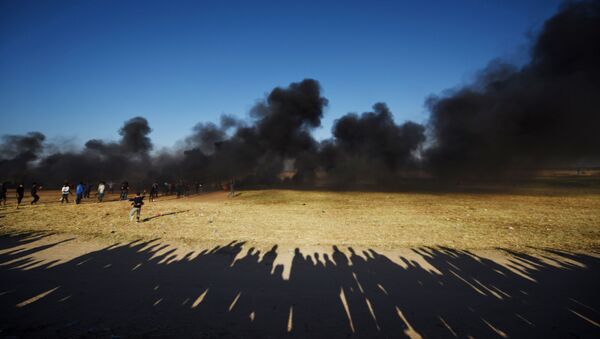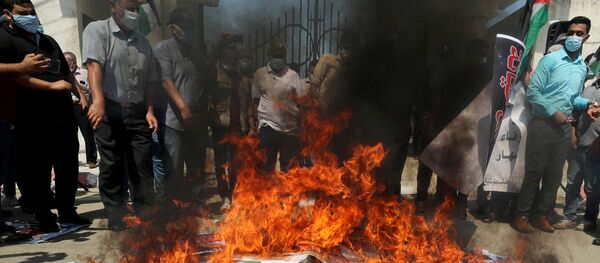It has been 20 years since the eruption of the so-called second Intifada, or Palestinian uprising, that was believed to have been instigated by the visit of then head of the Israeli opposition Ariel Sharon to the Temple Mount, a plateau in Jerusalem considered holy for Jews and Muslims alike.
Triggering a huge outcry, that visit brought thousands of Palestinians into the streets of the West Bank and the Gaza Strip where they clashed with Israeli security forces, demanding the nation's leadership take their hands off Islam's holy sites.
The Last Straw
But for Dr Nabil Shaath, currently a top adviser to Palestinian leader Mahmoud Abbas, who back then served as a close aide to Palestinian leader Yasser Arafat, Sharon's visit to the Temple Mount was the straw that broke the camel's back.
The frustration of the Palestinians, he says, started long before the notorious visit.
Although the historic Oslo Accords in 1993 between Israel and the Palestinians stipulated the gradual establishment of an independent Palestinian state, in reality very little has been done to achieve that goal.
Israel claimed it couldn't entrust the Palestinians, who had resorted to terror since the mid-1990s, with more territories, while the Palestinians believed the Jewish state had done everything in its power to prevent the creation of their state.
That distrust was also felt in the summer of 2000, when the US under then-President Bill Clinton finally managed to get the two sides to sit town at the negotiating table in Washington but the talks failed to produce results.
This failure led some in Israel to believe the riots that erupted shortly afterward had nothing to do with the spontaneous anger of the Palestinians and that the Intifada was in fact planned and executed by the PA leadership.
For Shaath, however, those claims do not make any sense. "The Palestinian leadership was trying hard to contain the situation, but the actions of Sharon made it impossible for us to hold the masses back".
Terror As Legitimate Measure?
Sharon came to power in February 2001, a month after two Palestinian factions, Fatah and Hamas, decided to change their tactics in handling the Israeli Army.
If in the first months of the Intifada the focus was more on riots and clashes with security forces, 2001 saw an increase in terror activity against civilians.
During the five-year Intifada, Israel witnessed more than 10,000 assaults, 155 of them were suicide attacks. These incidents claimed the lives of over 1,100 Israelis. Thousands of others were also wounded in the violence.
Despite the pain, loss, and destruction inflicted by the operation, Shaath believes the drastic measures taken by the Palestinians were a legitimate method used by a people, "who were suffering at the hands of Israeli occupation".
Did that resistance achieve its aims? Shaath believes that back then it did. Now, however, as "life and circumstances have changed", the Palestinians should be looking for other means to continue their struggle for independence, Shaath notes.




